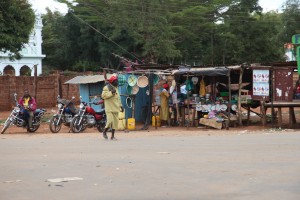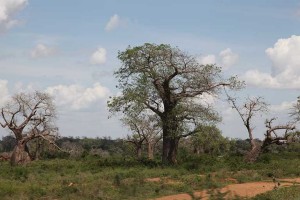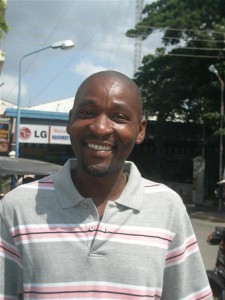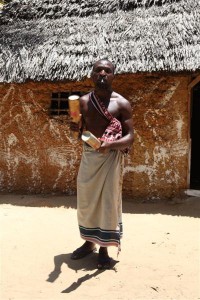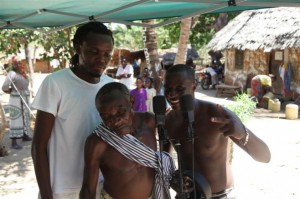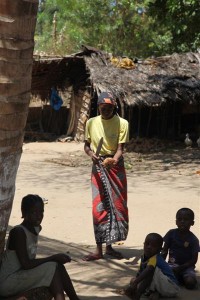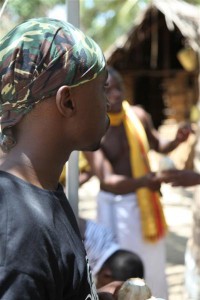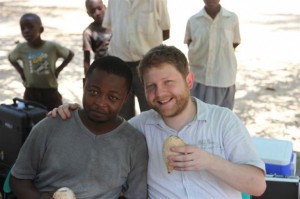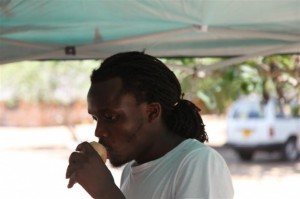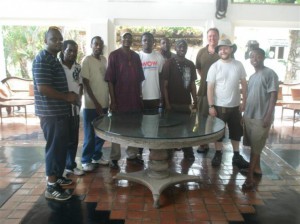On the 29th March 2011, we began our first day of recording in the field as part of the Singing Wells project.
The previous day, we had set out from the Ketebul studios in the Industrial area of Nairobi, and driven to Malindi – a town on the Kenyan coast. The evening rush hour traffic in Mombasa meant we had a night drive up the coast road to Malindi. The next day however, we were treated to the sight of the coast road by daylight. The lush greenery and bustling activity of traders along the roadside not apparent the night before.
We turned off the main road, and picked up our fixer Ndeche. We journeyed further from the main road past a school and into the village of Sila.
The welcome we received from the villagers was warm and kind, and we began recording, with the recording team sheltered from the blazing sun, under a gazebo, hastily bought two days before in Nakumatt in Nairobi.
The recording of the groups went well. After Nyerere Wa Konde Music Club, we moved the set through 90 degrees and recorded Zaire Ndindingwara. We managed to capture special performances from both groups and went on to sample their percussion.
One of the members of the Nyerere Wa Konde Music club then played us some of the music he had created in a project studio he has, away from the village, towards the coast road. It was from this, that Tabu suggested that the member, Mr Bado (son of the leader of the group, and village) sang with his father on one of the son’s tracks.
This was a new concept for the group. Bado had always sung in the family music group – and in doing this had sung the songs of his family and heritage, but now they were collaborating on one of Bado’s songs. Bado sang the main line of the song ‘Love Is’ and his father sang between the lines, and the rhythm began to take hold. I also at this point learnt my forth Swahili word (Asante, Jambo and Sawa – Thank you, Welcome and OK) – Nakupenda – meaning I Love You.
At this point, Ketebul artist Winyo, who had joined us on the trip as cameraman and artist then also joined in.
I quickly re-arranged the microphones and prepared headphones, so that the musicians could hear each other, and we recorded it. Thus the concept of the ‘Influence’ session was born. The recording is here for you to listen to, and to buy on the Mijikenda of Kenya album
The father, Nyerere wa Konde was very gracious and offered us coconuts as a thanks for visiting and recording, which he, with the help of other villages prepared for us, using his knife.
He was pleased and proud that we had journeyed to his village to record his music with his group. After which, the team packed up the equipment, loaded up the Land Cruisers and we headed back to our hotel in Malindi.

